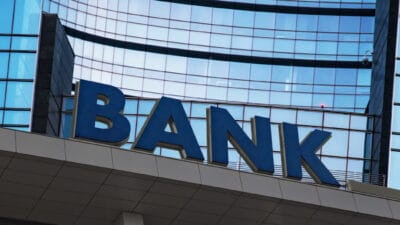Despite near-zero interest rates, the big ASX-listed banks have some excellent news to see in the new year.
Evidence from multiple sources is showing that the housing market is heating up for a massive post-COVID surge.
"It seems likely that residential property transactions will increase by a quarter in 2021 as, in addition to homebuyers, we're now seeing property investors also returning to the fold — lured by the prospect of neutral-to-positively geared investments," said BuyersBuyers.com.au chief operating officer Pete Wargent.
"Now it's notable that they're feeling confident enough to buy again."
Commonwealth Bank of Australia (ASX: CBA) has noticed the effects of the Reserve Bank's November rate cut among Australian households.
"Home buying spending intentions jumped higher last month, which was consistent with our expectations that the improvement in the Australian economy and the further interest rate cuts associated would see a restrengthening of the home buying market," said CBA chief economist Stephen Halmarick.
National Australia Bank Ltd (ASX: NAB) home ownership executive Andy Kerr said mortgage applications were at a frenzy at the moment.
"First home buyers are back in the market at levels we haven't seen for a decade," he said.
"Demand has been supported by historically low interest rates and more government support, such as the First Home Loan Deposit Scheme and HomeBuilder. A brief pullback in property prices also helped first-home buyers as the uncertainty of COVID-19 put many plans on ice, with investor demand slowing noticeably."
Low margin but higher volume
This is all excellent news for the major banks like NAB, CBA, Westpac Banking Corp (ASX: WBC) and Australia and New Zealand Banking Group Ltd (ASX: ANZ).
Their fortunes have always had a strong correlation to the health of the Australian real estate market.
Yes, extremely low interest rates this time don't leave the banks much margin — but the volume of new clientele might soothe the pain.
BetaShares chief economist David Bassanese said the low rates had "dramatically improved housing affordability" and real estate prices would jump up next year.
"The [COVID-19] peak-to-trough decline in national house prices has been only around 2% — far less than even some of the best-case scenarios touted only a few months ago," he said.
"I personally anticipated a decline closer to 10%"
Most experts agree with Bassanese that the market is hot again and housing prices would ramp up in 2021. Earlier this month, a Finder survey found 24 out of 28 finance experts forecasting that real estate prices would exceed 2019 levels in the coming year.
Even the Reserve Bank thinks Australian banks will be just fine, despite the ultra-low rates that it set.
"Australian banks are better prepared than they were prior to the GFC," head of financial stability Jonathan Kearns said in a speech on Tuesday.
"Their much higher liquid asset holdings helped earlier this year. Banks are well capitalised. Importantly they have large buffers which are there to be used, not preserved, and will enable them to continue lending and supporting their customers, and so the economic recovery."
A crazy year for real estate
Wargent said the way the property market panned out this year has been remarkable.
"2020 has been one of the most unusual years on record for real estate markets in Australia," he said.
"We came into the year with relatively low unemployment and confidence running at a solid clip, but as the first quarter of the calendar year progressed it became increasingly clear that significant disruption could be on the cards."
But just a half-year later, real estate has flipped around once again.
ASX-listed banks and their shareholders had more good news on Tuesday.
Financial watchdog Australian Prudential Regulation Authority (APRA) announced it would no longer require banks to retain at least half of their earnings. This means the companies are free to restore dividends back to the high levels traditionally seen in the Australian finance sector.









